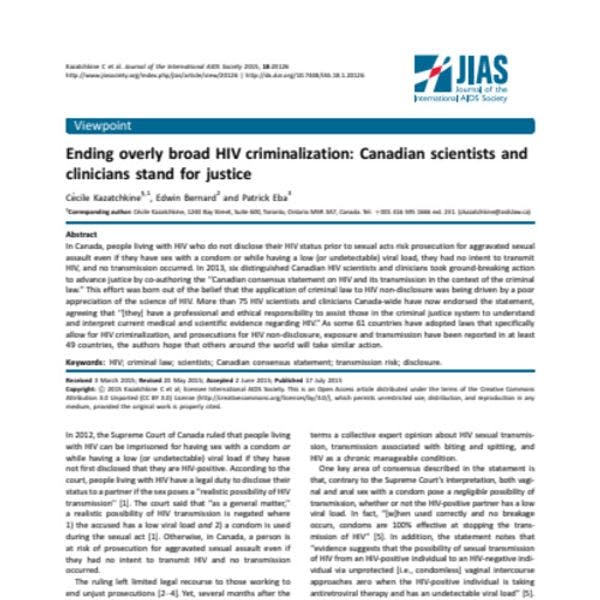Ending overly broad HIV criminalisation: Canadian scientists and clinicians stand for justice
In Canada, people living with HIV who do not disclose their HIV status prior to sexual acts risk prosecution for aggravated sexual assault even if they have sex with a condom or while having a low (or undetectable) viral load, they had no intent to transmit HIV, and no transmission occurred.
In 2013, six distinguished Canadian HIV scientists and clinicians took ground-breaking action to advance justice by co-authoring the ‘‘Canadian consensus statement on HIV and its transmission in the context of the criminal law.’’ This effort was born out of the belief that the application of criminal law to HIV non-disclosure was being driven by a poor appreciation of the science of HIV.More than 75 HIV scientists and clinicians Canada-wide have now endorsed the statement, agreeing that ‘‘[they] have a professional and ethical responsibility to assist those in the criminal justice system to understand and interpret current medical and scientific evidence regarding HIV.’’
As some 61 countries have adopted laws that specifically allow for HIV criminalization, and prosecutions for HIV non-disclosure, exposure and transmission have been reported in at least 49 countries, the authors hope that others around the world will take similar action.
Keep up-to-date with drug policy developments by subscribing to the IDPC Monthly Alert.
